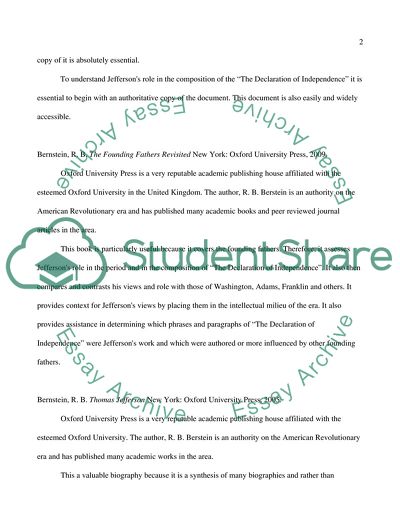Cite this document
(Thomas Jefferson and the Declaration of Independence Annotated Bibliography - 1, n.d.)
Thomas Jefferson and the Declaration of Independence Annotated Bibliography - 1. Retrieved from https://studentshare.org/sociology/1572261-declaration-of-independence-thomas-jefferson
Thomas Jefferson and the Declaration of Independence Annotated Bibliography - 1. Retrieved from https://studentshare.org/sociology/1572261-declaration-of-independence-thomas-jefferson
(Thomas Jefferson and the Declaration of Independence Annotated Bibliography - 1)
Thomas Jefferson and the Declaration of Independence Annotated Bibliography - 1. https://studentshare.org/sociology/1572261-declaration-of-independence-thomas-jefferson.
Thomas Jefferson and the Declaration of Independence Annotated Bibliography - 1. https://studentshare.org/sociology/1572261-declaration-of-independence-thomas-jefferson.
“Thomas Jefferson and the Declaration of Independence Annotated Bibliography - 1”, n.d. https://studentshare.org/sociology/1572261-declaration-of-independence-thomas-jefferson.


